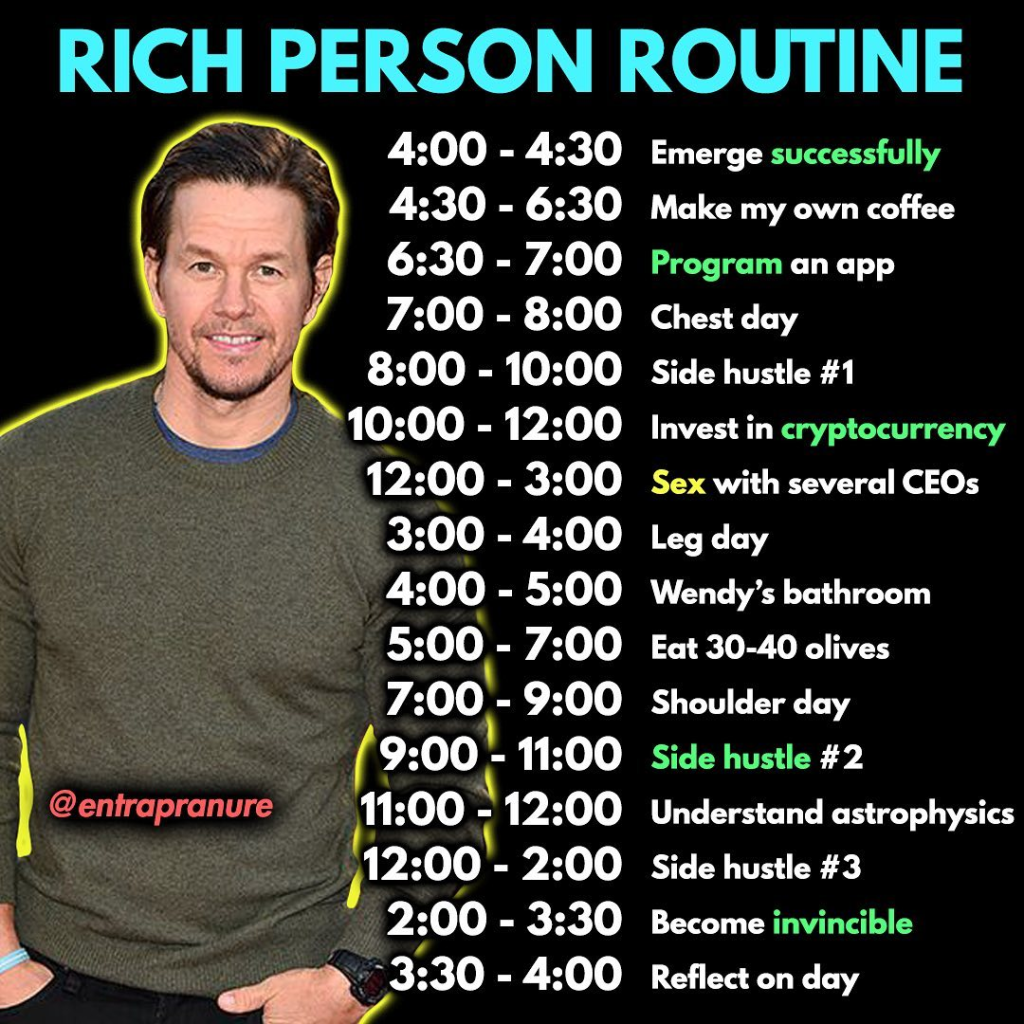Business
The TopRanked.io Weekly Digest: What’s Hot in Affiliate Marketing [BullionVault Affiliate Program Review]
From boomer-bait Prawn Jesus slop to Billboard streaming charts, and everything “aesthetic” in between, Christian content is booming online. And there might just be a big affiliate opportunity here if you’re able to ride the wave. But if you’re going to do it, you’re going to want to monetize, so be sure to check out our quick BullionVault Affiliate Program review while you’re at it.

Quick Disclosure: We’re about to tell you the BullionVault afiliate program is pretty great. And we really mean it. Just know that if you click on a BullionVault affiliate program link, we may earn a small commission. Your choice.
Some things are timeless.
Like memes.

But, as affiliate marketers, we can’t exactly sell memes, even if they sometimes make great fodder for content.
But here’s something that’s both timeless, and 100% sellable.

And yeah, I know that “meme” is 2 years old.
But that’s kinda the point — it’s so timeless I don’t need to find an updated version.
Now let’s see how you can profit off of this.
TopRanked.io Affiliate Program of the Week — BullionVault Affiliate Program
If you wanna sell gold online and still get paid (decently) as an affiliate, then there’s really only one good option out there.
The BullionVault Affiliate Program.
Let’s take a closer look and I’ll show you why the BullionVault Affiliate Program is so great.

BullionVault Affiliate Program — The Product
If you’re going to buy gold online, there aren’t really all that many good options.
You can either buy “derivatives” (e.g., CFDs).
Or you can buy bullion and get it shipped to you (but that’s risky and expensive).
Or, you can buy what the BullionVault Affiliate Program is selling — professionally vaulted gold.
In other words, with the BullionVault Affiliate Program, you can sell both the gold, and the storage (the vault) all in one neat little package.
People click your BullionVault Affiliate Program link.
They purchase their bullion.
And then they have BullionVault “vault” their “bullion” in either Zurich, London, Toronto, Singapore, or New York. (And the BullionVault Affiliate Program will offer insurance on your deposits, too.)
And that’s the first reason why, if you wanna sell gold, then you’re probably going to want to do it with the BullionVault Affiliate Program.
Simply put, the BullionVault Affiliate Program offers the safest, most convenient way for the ordinary person to buy real gold (not some made up “derivative”) and not have to deal with the security stuff that usually goes along with buying real gold.
Oh, and just in case you needed a sign that the BullionVault Affiliate Program actually converts — currently, the BullionVault Affiliate Program holds over $4 billion worth of assets for over 100k clients.
Nice.

BullionVault Affiliate Program — The Commissions
Alright, so we know the BullionVault Affiliate Program product checks out. Now for the commissions.
Here’s how it works with the BullionVault Affiliate Program:
- The BullionVault Affiliate Program pays you a 25% commission on all referred purchases.
- The BullionVault Affiliate Program will continue paying you a 25% commission for any subsequent purchases for a full two years.
And as for payouts — the BullionVault Affiliate Program pays out directly into your bank account, so no messing around with third parties (PayPal, etc.) which is always a nice thing. To have.

BullionVault Affiliate Program — Next Steps
Alright, that’s enough about the BullionVault Affiliate Program for now.
Here’s what you can do next:
- Option 1: If you want more details, head on over to TopRanked.io for our detailed BullionVault Affiliate Program review.
- Option 2 [best]: Head here to sign up for the BullionVault Affiliate Program today.
Either way, you can’t go wrong.

Affiliate News Takeaways
I don’t know about you, but there’s a feeling I can’t shake.
Christian content on big platforms seems more present than ever.
And I’m not just talking about all the slop boomers on Facebook were going goo-goo-ga-ga for.

No, the feeling I can’t shake is a bit more akin to what this guy was noticing.
Now, I know, I know — there could be a billion and one reasons why anyone would suddenly see a massive increase in a certain type of content.
It could just be that you got clickbaited by a single piece of content in that niche…

And now the algorithm is all like, “Alright, because you clicked something in this niche once, now I’m gonna bombard you with more.”
But I also think there’s something more going on — something that goes beyond a handful of Reddit anecdotes and a little first-hand experience.
Take this week’s news, for instance. This week, the WSJ writes:
Christian Music Is Everywhere Now—Whether You Realize It Or Not [link]

That article pulls up some semi-useful numbers that kinda hint towards a trend. Notably, the fact that Christian music is now one of the fastest-growing genres in the U.S.
It just scraped into the top-5 on this front in 2024.
And this year, it’s now tracking as the second-fastest growing genre — second only to country.

Now, just to be clear here, that doesn’t mean Christian music’s suddenly the biggest genre out there.
But, it’s not exactly small either — with all the rapid growth it’s been seeing, it now accounts for a full 2% of the streaming market (as of mid-2025).
And if you think that sounds tiny, take a look at electronic dance music for comparison — it was sitting at 3.3% at the same time, which is only about 65% bigger.

Of course, given the fact that we’re talking about streaming, what this boom in Christian music actually means is anything but clear-cut.
After all, streaming a track and actually going out and buying a CD/record/whatever are two very different things.
For starters, it’s easy to stream something just because you think it sounds catchy (and that’s certainly a part of the growth Christian music has experienced).
And it’s a whole other thing to actually commit to buying your own personal copy of that track/album — it’s a whole different level of commitment.

With that said, even if it is TikTok dances or whatever behind the growth in Christian music, you kinda gotta wonder why these are even going viral in the first place.
I mean, there are literally a million different things that could — neigh, should — go viral.
So why Christian music in particular?
And this is where things start to get really confusing.
And by “things” that are “confusing”, I mean “trying to explain why there’s more Christian content on my feed than ever before.”
Unfortunately, the usual data sources don’t really offer that much of an explanation.

About the most “promising” thing for Christianity I could find in terms of hard numbers was a Pew Research Center report from a few months ago.
The headline finding here:
The Decline of Christianity Has Slowed [link]
That’s it.
Nothing about growth.
Just a slowdown in the decline of its popularity.
And what’s more damning for the whole “Christian music growth is being fueled by kids on TikTok narrative is this stat — the young adult (18-29) cohort has the lowest share of Christians by far at just 54% (compared with 62% on average across all cohorts).
Maybe that’s why all the kids are so sad these days…

So where does that leave us?
Christianity is becoming more present.
And yet, the number of people actually practicing it is, at best, totally stagnant.
But maybe there’s another clue here.
For instance, we know people consume/post all sorts of symbolic content online that doesn’t exactly spill over into their actual real-world identity.

That’s more or less a given in a range of “niches”.
And, if you look into it, you can find a bunch of research here that applies to Christianity, specifically.
For instance, there’s this study that came out a few months ago.
It looks at how young people are “curating” religious content online and there’s something interesting here.
Basically, there’s a bunch of young people engaging with “curated” religious content due to vibes/aesthetics/etc.
That is, they’re engaging with it because it’s uplifting/positive/whatever, not because it’s Christian per se.
Not that the study actually used those exact words — it was a study, after all.
What it did say, however, was that participants in this study actively disengaged from doctrinal or community-/practice-based religious content — the sort of stuff someone more committed would usually consume.
And if that sounds weird, think about it like this.
How many people engaging with/producing hustle bro content are actually entrepreneurs, like you’d expect?
If you looked at many, you’d probably find one of two profiles dominate here — unemployed, or employed in something painfully boring — with the tail end being made up of actual entrepreneurs.

And here, you’d probably find the same “aesthetic” vs. “doctrinal” split that the above study found in Christian content consumption online. Here’s an example of what I mean:
- Aesthetic: “Slack pings, DMs, fifteen browser tabs exploding with opportunity — that’s how you stay plugged in at all times. If you’re not juggling twelve tasks while voice-noting your next big play, are you even optimizing?”
- Doctrinal: “UC Irvine’s Mark, Gonzalez & Harris spent years quantifying the cost of constant interruptions. Result: more errors, longer recovery times, slower throughput — working past mental saturation produces illusion-of-productivity bias.”
On one hand, you’ve got something that plays into certain vibes — ridiculously convoluted morning routines, desk setup porn, caffeine-as-identity-while-multitasking-15-things-at-once, etc.

And on the other hand, you’ve got something useful. Doctrine that actually helps you get more stuff done — the sort of stuff someone who actually identifies as an actual entrepreneur might also consume alongside (or instead of) all the “aesthetic” stuff.
And this is the same sort of split researchers saw with Christian content consumption online — plenty of kids are consuming the “aesthetic stuff”, while not many are consuming the “how to be a good Christian” doctrinal stuff.
Takeaway
To be totally honest, most of the data I’ve pulled on above is quite thin.
You’ve got a mix of:
- Anecdotes.
- A single “big” data point that only captures a small element of the phenomenon.
- Studies with rather small sample sizes.
But that’s not to say there isn’t (maybe) an opportunity here.
That opportunity — think of it like the ol’ “sex sells” thing where you slap a sexy man/lady on it, and people will buy it.
Only this time, you’re slapping a little Christianity on it, and hoping the “aesthetic” will hook a few people.
If you can do that, you might just land on something that works. After all, if the data’s halfway accurate, then we’re probably in a moment of increasing consumption of Christian content online (music, AI slop, feel-good “aesthetic” stuff, etc.)
Only question, of course, is what you’re going to sell alongside your Christian-flavored content.
Personally, I reckon you could have some serious success with the BullionVault Affiliate Program.

Closing Thought
Since we’re on the topic of Christianity, let’s close out this week with a Jesus quote:

So, what did Jesus mean here?
Honestly, I have no idea — but I’m gonna make a guess.
First, let’s get the context straight — Jesus said this in response to a guy who said something like “I wanna follow you, but first I need to go and bury my father.”
But here’s the tricky bit — apparently, back in the day, people (in Jewish culture) buried the dead immediately. So the guy didn’t literally mean “I need to bury my father right now”. Instead, he meant “I need to go look after my sick/dying father, then when he’s buried, I’ll follow you.”
So with that background, we can guess that what Jesus actually meant went more like this:
“Get your priorities straight — if you’re waiting for a time when it’s “safe” or “convenient” to follow me, then maybe you’re not all that committed.”
And if that’s halfway true, then maybe it’s something we could all apply a little more of in our lives.
Plenty of us have things we’d “like” to do, but don’t end up doing them because of something else we “need” to do.
So here’s your question of the week: Are you gonna let the dead bury the dead, or are you gonna let the dead bury you?
If you pick the first option, then maybe you should also check out the BullionVault Affiliate Program.

__
(Featured image by SevenStorm JUHASZIMRUS via Pexels)
DISCLAIMER: This article was written by a third party contributor and does not reflect the opinion of Born2Invest, its management, staff or its associates. Please review our disclaimer for more information.
This article may include forward-looking statements. These forward-looking statements generally are identified by the words “believe,” “project,” “estimate,” “become,” “plan,” “will,” and similar expressions. These forward-looking statements involve known and unknown risks as well as uncertainties, including those discussed in the following cautionary statements and elsewhere in this article and on this site. Although the Company may believe that its expectations are based on reasonable assumptions, the actual results that the Company may achieve may differ materially from any forward-looking statements, which reflect the opinions of the management of the Company only as of the date hereof. Additionally, please make sure to read these important disclosures.

-

 Markets7 days ago
Markets7 days agoWeather-Driven Supply Outlook Lifts Coffee Markets in Brazil and Vietnam
-

 Markets2 weeks ago
Markets2 weeks agoCotton Market Weakens Amid Demand Concerns and Bearish Trends
-

 Business5 days ago
Business5 days agoTopRanked.io Weekly Affiliate Digest: What’s Hot in Affiliate Marketing [Best Technology Affiliate Programs]
-

 Fintech2 weeks ago
Fintech2 weeks agoFintech Alliances and AI Expand Small-Business Lending Worldwide














